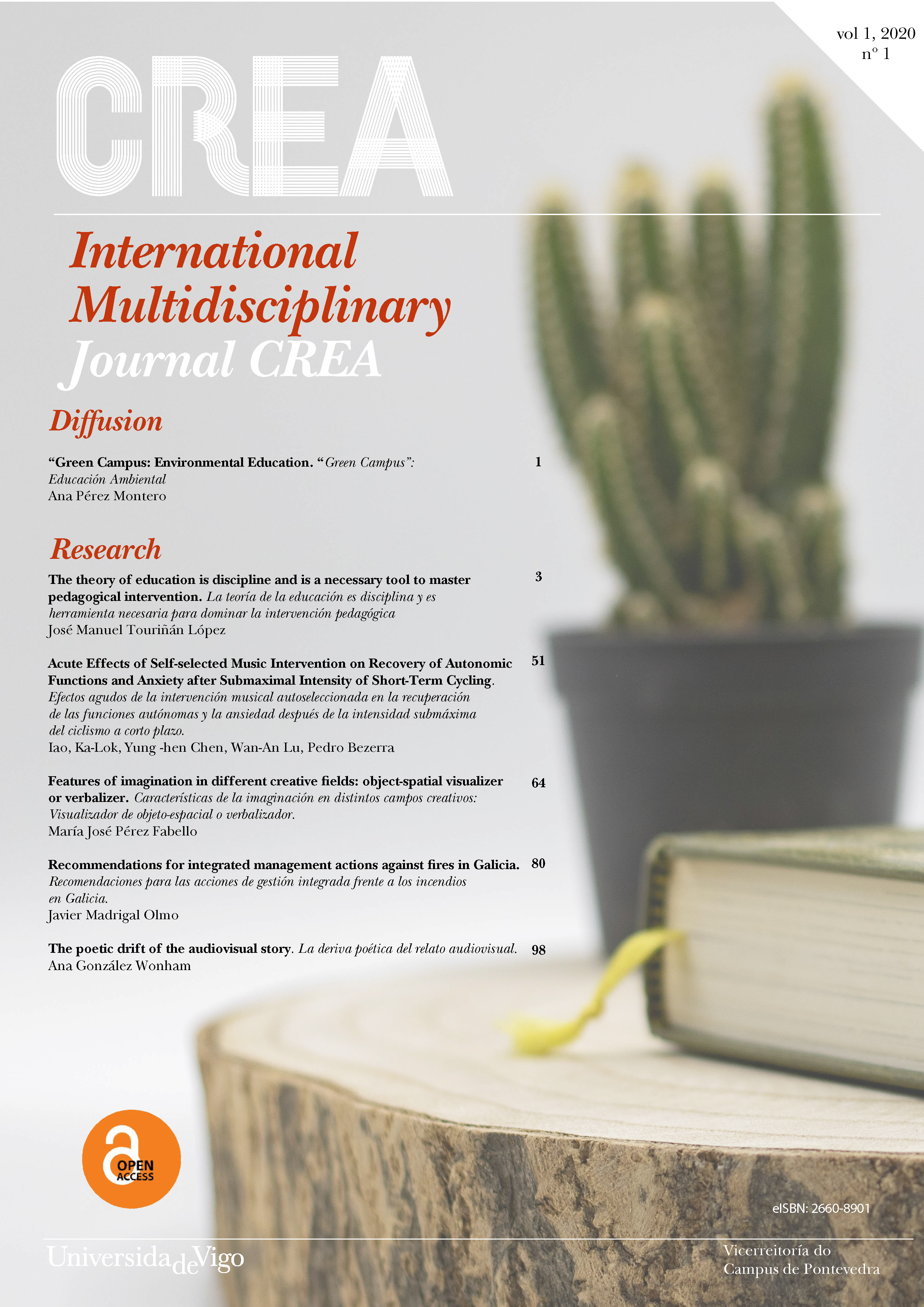The theory of education is discipline and is a necessary tool to master pedagogical intervention.
DOI:
https://doi.org/10.35869/ijmc.v1i1.2846Keywords:
General pedagogy, applied pedagogy, epistemology of education, mesoaxiological pedagogy, knowledge of education, theory of educationAbstract
A discipline which has its own concepts, original ones, can be applied to the interpretation of other realms of reality as long as those realms can be adjusted to those original concepts to some extent. In this way the generative discipline becomes an interpretive theory of the field in which it is applied, because it interprets it from the concepts that the generative discipline has made. From this same perspective, the own concepts, autochthonous concepts, of the pedagogy discipline can be used to generate applied disciplines (interpretative theories) such as labor pedagogy, family pedagogy, environmental pedagogy, social pedagogy, prison pedagogy, etc. The important thing is to be able to go from General Pedagogy to applied Pedagogies, because very diverse spheres of knowledge can be interpreted as applications in terms of the Pedagogy discipline. The pedagogy of the future will necessarily be the realm of applied pedagogies. Pedagogy generates applied research on other fields of reality and knowledge and other scientific disciplines generate applied research on the field of knowledge 'education'. Regarding education there is a plurality of theoretical research; some are born from Pedagogy and others are born from other scientific disciplines. There is theoretical research about education and there is education practical theory research (both of two are built from other scientific disciplines). There is also theoretical research which has born from the discipline ‘Pedagogy’: there is theoretical research of education (theory as a level of epistemological analysis) and there is research of educational theory as a discipline (general pedagogy discipline or theory of education discipline, in strict sense). The objective of this article is to understand the relationship between ‘theory’ and ‘education’ by means of the knowledge of education, its diversity as a discipline and as research. It is possible to accomplish that objective, because the theory of education is knowledge of education; there is a relationship between theory and education through knowledge of education. Each way of understanding the knowledge of education allows us to understand the meaning of the theory in relation to ‘education’. It is possible to integrate the diverse positions that exist in the semantic plurality of the concept of ‘theory’ in relation to ‘education’, either as a discipline and subject-matter of curriculum or as a way of research. And if we understand the scope of the relationship between ‘theory’ and ‘education’, we will understand the meaning of the title of this article: Theory of education is a discipline and it is a necessary tool to master pedagogical intervention.
Downloads
Downloads
Published
How to Cite
Issue
Section
License
Copyright (c) 2020 International Journal of Multidisciplinary CREA (IJMC)

This work is licensed under a Creative Commons Attribution-NonCommercial-NoDerivatives 4.0 International License.
Copyright
After the acceptance of an article, the authors will be asked to complete a Publication Agreement. Acceptance of the agreement will guarantee the widest possible dissemination of information. Under this agreement, the copyright will be transferred to the Company / Institution if the manuscript is accepted for publication. Permission from the Company / Institution is required for resale or distribution outside the institution and for all other derivative works, including compilations and translations. If extracts from other copyrighted works are included, the author (s) must obtain written permission from the owners of the copyright and credit rights of the source (s) in the article.
Rights of users
All the articles published in the magazine will be immediately and permanently accessible so that any user can read and download them. The (Re) use allowed for third parties of the published content will be defined by the following Creative Commons license: Creative Commons Attribution-Noncommercial-No Derivative Works (CC BY-NC-ND). For non-commercial purposes, allow others to distribute and copy the article. It also allows its inclusion in a collective work (such as an anthology), provided that the author (s) is cited and the article is not altered or modified.
Publication cost
The author of the accepted articles should not pay for its publication. The Society or the Institution that owns the journal finances the production costs of the manuscripts.








